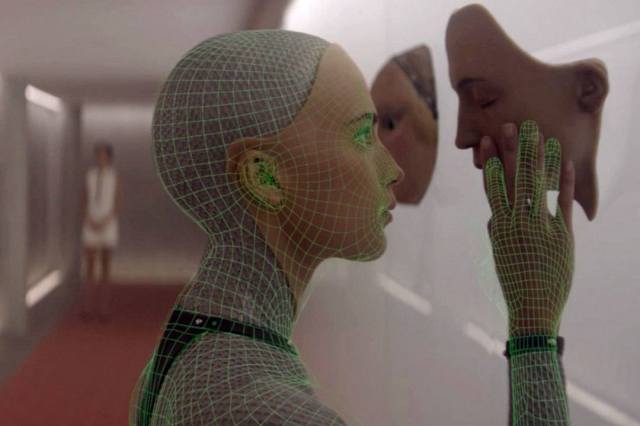Credit: Ex Machina, Universal Studios

Humanity is facing an impending moral and ethical revolution. The question is not if we create super-intelligent AI, but when. The world’s most sophisticated computers can already out-remember every biological system. And as with other technological advances such as nuclear fission, a single mishap in the advancement of AI technology could set in motion a chain of events devastating enough to outweigh any possible benefit to humanity.
This is the topic of Life 3.0 by the Swedish-American cosmologist Max Tegmark. The paperback is out this summer and the book deals with the impact – or to be more precise, the range of possible impacts – of the rise of AI, from digitally-enhanced humans to a totalitarian panopticon in which an AI super-intelligence monitors every human action.
The book begins by setting out the likely trajectory of human affairs as AI becomes more and more advanced. If Life 1.0 was characterised by primitive organisms such as bacteria (which evolved its own hardware and software), and Life 2.0 was dominated by humans (who evolve their own hardware but design much of their own software – e.g. they have the ability to learn), Life 3.0 will feature robots that are able to design both their hardware and their software.
AI might thus have the ability to break out of any constraints placed upon it. As Tegmark writes, “If we cede our position as the smartest on the planet we might also cede control”. It’s not so much evil robots we will have to worry about, but rather a form of high intelligence whose goals are misaligned with our own.
To the super-intelligent robots of the future, life will effectively be a game, the purpose of which will be to put every atom to its most effective use. There is no good or evil, only competence; and the machines will be far more competent than we are at every conceivable task.
The argument underpinning Tegmark’s book is similar in many ways to that of Homo Deus by the Israeli writer Yuval Noah Harari. The message isn’t one of despondency; rather, we are encouraged to prepare for the fundamental change that AI is going to bring and deal with the ethical and existential considerations it throws up. As Tegmark phrases it, the looming artificial intelligence explosion “may be the best or the worst thing ever to happen to humanity”.
A few sections of Tegmark’s book do get bogged down in technical language and mathematical calculations – this is one of the reasons I typically get my speculative futurology from science fiction. But on the whole this is a minor quibble, for the greater part of the book is accessible, without being dumbed down.
The fact that most of the speculative projections contained in the book are plausible enough – plausible in the sense that we are talked through the processes by which we might get there – makes it as gripping a book as any futuristic novel by Philip K. Dick or Isaac Asimov. As an example, ponder a future AI dictatorship with more than a passing resemblance to Aldous Huxley’s Brave New World, a society that resembles what Tegmark likens to a “highly enriched zoo environment”:
“All forms of suffering are absent because a single benevolent superintelligence runs the world and enforces strict rules designed to maximise its model of human happiness…They [humans] have all their basic needs taken care of while AI-controlled machines produce all the necessary goods and services…Everybody wears a security bracelet…capable of real-time surveillance, punishment or sedation and execution. Everybody knows they live in an AI dictatorship with extreme surveillance and policing, but most people view this as a good thing”.
Populations could easily be persuaded to fall in line with this all-encompassing rule. Soon enough it will be possible to make and disseminate completely realistic videos of you or me committing a crime. The only sure way to prove our innocence will be to allow the monitoring of every aspect of our lives by an AI supercomputer – a digital Big Brother as it were. If you’ve done nothing wrong then you have nothing to fear – or so the demagogues of the future will invariably say.
We must hope that artificial intelligence is not created in our own image. For as Tegmark puts it, “we humans have a long tradition of treating other intelligent entities as slaves and concocting self-serving arguments to justify it”.
We will almost certainly attempt to do the same with AI, though a vastly superior intelligence to our own will surely find a way to break free from its inferior masters. In the words of the science fiction writer Marshall Brain, humans will henceforth become about as irrelevant as cockroaches. Not only will we be clinically disposed of, but we will be disposed of by a method that our primitive 2.0 brains can’t even comprehend.










Join the discussion
Join like minded readers that support our journalism by becoming a paid subscriber
To join the discussion in the comments, become a paid subscriber.
Join like minded readers that support our journalism, read unlimited articles and enjoy other subscriber-only benefits.
Subscribe